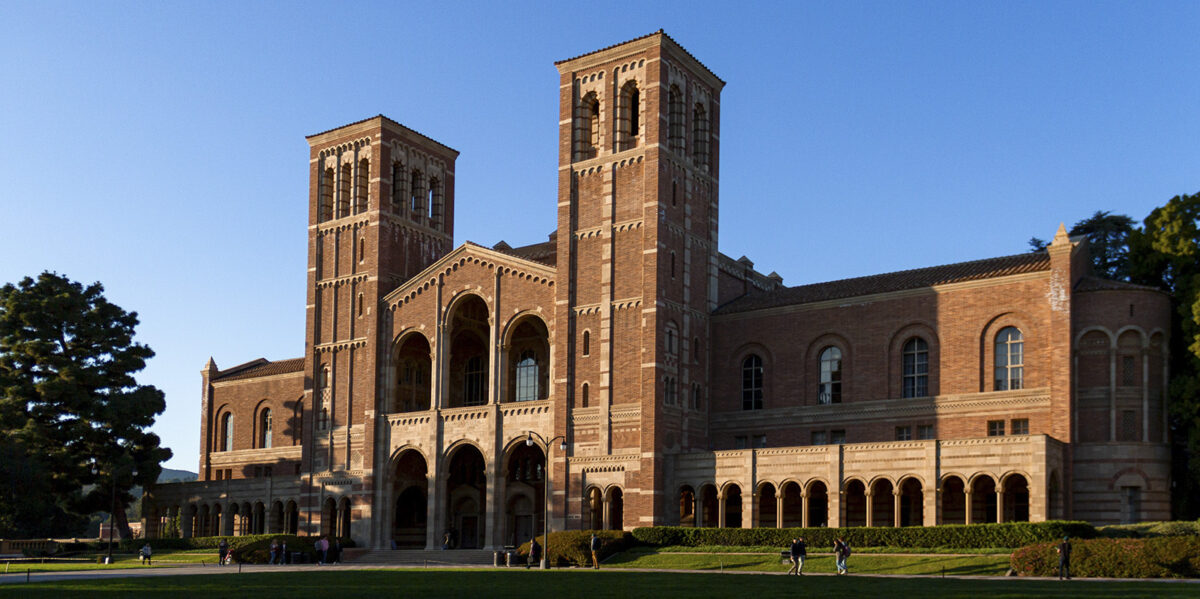
The Sustainability Plan will help develop a sustainable, healthy, and resilient campus
UCLA has a long history of sustainability leadership — from early energy efficiency efforts and the formation of the Institute of the Environment and Sustainability in the 1990s, to the establishment of the Sustainability Committee in 2004 and the launch of the Sustainable LA Grand Challenge in 2013. To make sure that we practice what we teach, in collaboration with others across the University of California, we have established ambitious institutional goals through the UC Policy on Sustainable Practices (PDF)
In support of these efforts, UCLA has developed many plans and initiatives including a Sustainable Transportation Plan, Carbon Neutrality Plan, Water Action Plan, Zero Waste Plan and more. For the first time, we have brought all of these together into a comprehensive sustainability plan for the campus that bridges academics, operations, and community engagement. The plan highlights the intersections of planetary and human health, and begins the work to ensure that equity, diversity, inclusion, and justice are integrated in our sustainability policies and programs. You can read the full plan or executive summary at the links below, and you can follow the progress in this dashboard. This UCLA Newsroom story touches on some of the highlights of progress since the plan launch.
Sustainability Plan Goals
01-1: Increase awareness and engagement on the interconnectivity between planetary and human health.
01-2: Expand resiliency research that emphasizes sustainable approaches using campus as a living laboratory.
01-3: Mature the UCLA Fielding School of Public Health’s membership in the Planetary Health Alliance and grow UCLA’s activities as part of the Regional Hub.
01-4: Reduce the environmental impact of UCLA Health’s waste stream.
01-5: Reduce chemicals of concern in the supply chain.
01-6: Activate campus landscapes to elevate biophilic connections between humans and nature.
02-1: Develop a comprehensive plan to expand the breadth and depth of intersections among equity, diversity, inclusion, justice, and sustainability.
02-2: Increase student funding opportunities for sustainability.
02-3: Elevate diverse voices in sustainability communications.
02-4: Leverage UCLA’s branding and supply chain to advance social and environmental justice.
02-5: Continue to develop land-based pedagogical opportunities with the Gabrielino Tongva and Fernandeño Tataviam Band of Mission Indians.
02-6: Collaborate across the UC through the Diversity, Equity, Inclusion, and Justice Working Group to ensure that equity and justice principles are integrated into the UC Policy on Sustainable Practices and implemented throughout the organization.
03-1: Increase recognition of sustainability as an interdisciplinary academic element.
03-2: Increase the ease with which students, faculty, and staff can identify sustainability and social and environmental justice courses.
03-3: Develop a comprehensive plan to expand the breadth and depth of sustainability work in curricula and research endeavors.
03-4: Increase connectivity with recent alumni working in sustainability to refine course offerings.
04-1: Reduce energy use intensity 2% annually.
04-2: Achieve climate neutrality from Scope 1 and Scope 2 emissions.
04-3: Use biogas in lieu of natural gas for on-site combustion.
04-4: Obtain 100% clean electricity.
04-5: Achieve climate neutrality from specific Scope 3 emissions.
04-6: Create a pathway to decarbonization.
04-7: Provide patrons and foodservice staff educational and training modules to support sustainable food choices.
04-8: Reduce food’s GHG emissions through globally-inspired, culturally-acceptable, plant-forward menus.
04-9: Strive to meet this topic area’s criteria in existing leased locations and incorporate language into lease requirements for new vendors and at renewal.
04-10: Increase sustainable food procurement using AASHE STARS criteria.
04-11: Increase sustainable food spending in UCLA Health using Practice Greenhealth criteria.
04-12: Develop new buildings that outperform the California Building Code (CBC) energy-efficiency requirements.
04-13: Omit on-site fossil fuel combustion for space and water heating in all projects after June 30, 2019.
04-14: Certify at least one LEED Existing Buildings: Operations and Maintenance project.
04-15: Achieve LEED Silver at minimum in all new construction and major renovation projects including at least 2 points in the Water Efficiency category.
04-16: At minimum, achieve LEED Silver and meet the prerequisites of the Labs 21 Environmental Performance Criteria for all new laboratory buildings.
04-17: Maintain a high-performance campus environment.
04-18: Assess research labs.
04-19: Support biodiversity and integrate the campus landscape into regional ecological systems.
04-20: Achieve a carbon neutral campus vehicle fleet.
04-21: Maintain and extend efforts to reduce and offset the carbon impact of university air travel.
04-22: Reduce single occupancy vehicle commuter rates.
04-23: Leverage UCLA’s buying power to increase environmentally, economically, and socially responsible supply chains.
04-24: Reduce waste generation.
04-25: Divert 90% municipal solid waste from landfill.
04-26: Reduce potable water consumption.
05-1: Increase the breadth and continuity of sustainability engagement efforts.
05-2: Develop a comprehensive development plan and identify resources for university-wide campus sustainability efforts.
05-3: Incorporate social equity and sustainability into all strategic plans, campus plans, and facilities plans.
